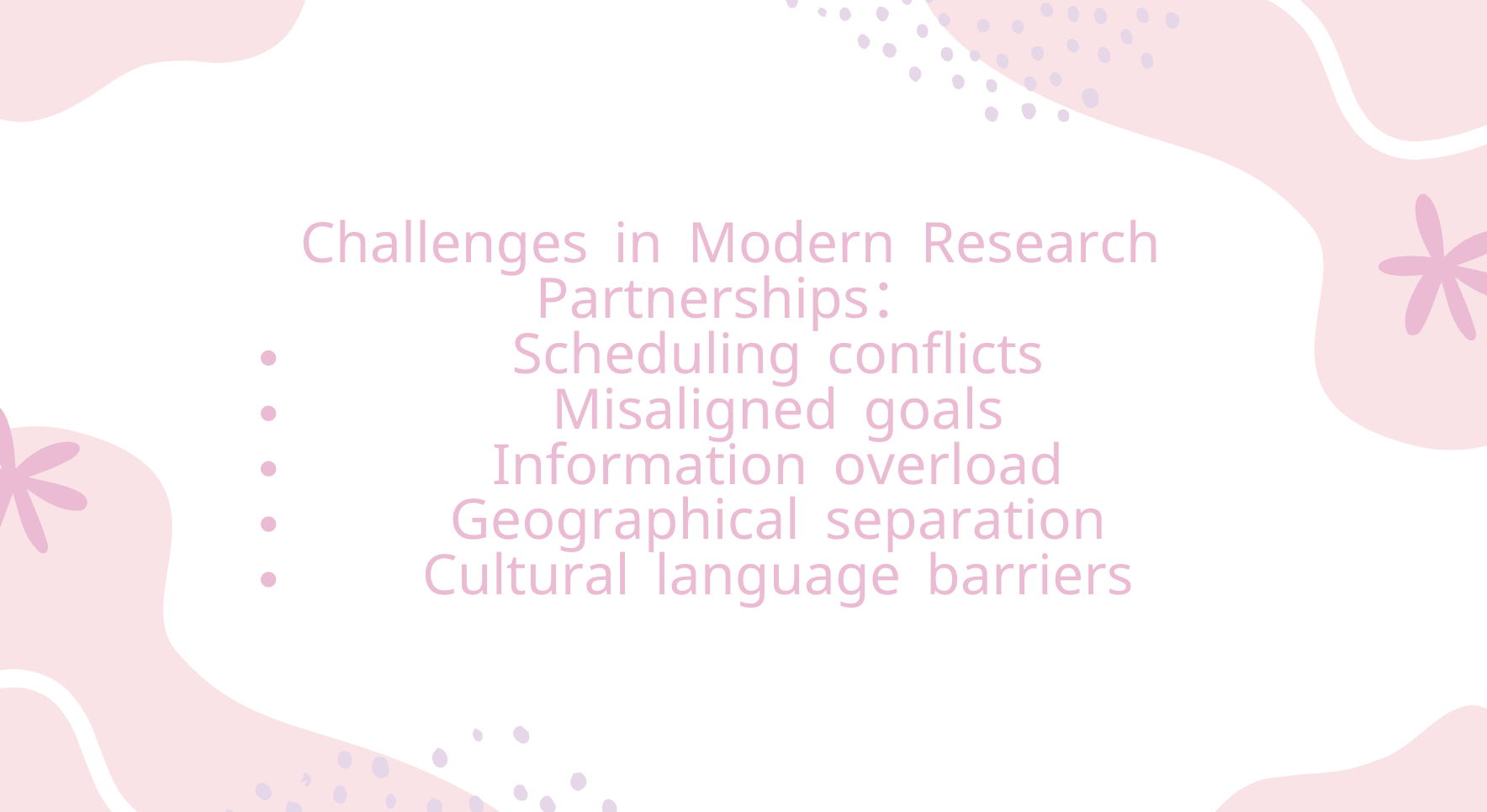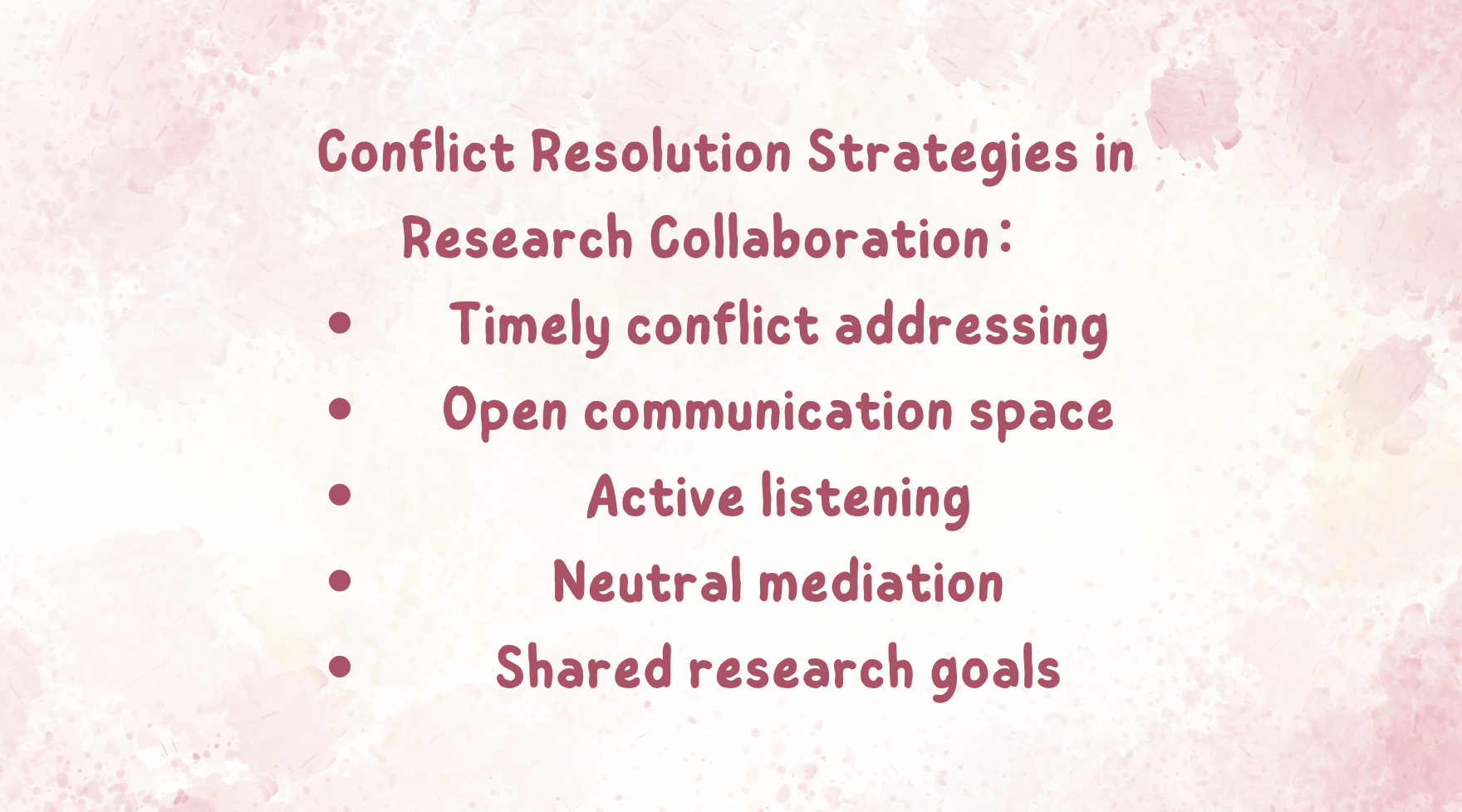
The Evolving Landscape of Research Collaboration
Challenges in Modern Research Partnerships
In today's fast-paced academic world, research collaboration faces numerous obstacles:
Conflicting schedules and time zone differences
Misaligned goals and expectations
Information overload and data management issues
Geographical distances limiting face-to-face interactions
Cultural and language barriers
These challenges underscore the need for innovative solutions to streamline collaborative processes and enhance communication among research teams.
Technology's Impact on Collaborative Research
The digital revolution has transformed research partnerships, offering tools designed to facilitate seamless collaboration across distances. These technologies enable researchers to work more efficiently and productively, opening up new possibilities for groundbreaking discoveries.
Leveraging AI for Seamless Research Collaboration
AI-Powered Knowledge Mapping
AI-powered knowledge mapping tools transform complex research papers into interactive, visual knowledge maps. These systems use advanced algorithms to analyze content, extracting key concepts, relationships, and findings. For collaborative teams, this visual approach saves time and promotes a shared understanding among team members, even those from different disciplines.
Enhancing Cross-Disciplinary Research with AI Analysis
AI systems, trained on vast databases of academic literature, can identify connections between seemingly unrelated fields. This cross-pollination of ideas can lead to novel approaches and unexpected breakthroughs, helping researchers quickly get up to speed on unfamiliar topics.
Streamlining Communication in Research Teams

Effective Knowledge Sharing Platforms
Centralized information hubs serve as the backbone of successful research partnerships. These platforms promote transparency and reduce the risk of miscommunication, making it easier for research teams to stay aligned and productive.
Overcoming Language and Cultural Barriers
AI-powered translation tools provide near-real-time translations of both written and spoken communication, enabling fluid discussions among researchers from different linguistic backgrounds. To foster cultural awareness, consider:
Organizing cultural exchange sessions
Encouraging open discussions about different working styles
Establishing clear communication protocols that respect diverse cultural norms
Fostering a Collaborative Research Environment
Building Trust and Transparency in Research Partnerships
Building trust starts with clear communication and shared goals. Digital tools play a significant role in enhancing trust and transparency by providing:
Real-time project updates
Shared document repositories
Collaborative editing features
Clear task assignment and tracking
Encouraging Diversity and Inclusion in Research Teams
Diversity in research teams is a catalyst for innovation and excellence. To foster an inclusive environment, implement recruitment practices that actively seek out diverse talent, create a workplace culture where every voice is heard and valued, and establish mentorship programs.
Resolving Conflicts in Research Collaboration
Identifying Common Sources of Conflict
Understanding the root causes of conflict can help address issues more effectively. Here's a table outlining common sources of conflict in research teams and potential solutions:
Conflict Source | Description | Potential Solution |
|---|---|---|
Authorship Disputes | Disagreements over order or inclusion of authors | Establish clear authorship criteria at project start |
Methodological Differences | Conflicting views on research methods or approaches | Use AI tools to analyze and compare different methodologies |
Data Interpretation | Disagreements on how to interpret research findings | Implement collaborative data visualization tools for clearer insights |
Resource Allocation | Conflicts over funding, equipment, or time distribution | Use project management software for transparent resource tracking |
When conflicts arise in research collaborations, having a toolkit of resolution strategies is crucial:
Address issues promptly and directly
Create a safe space for open dialogue
Practice active listening to understand each perspective
Consider bringing in a neutral mediator for complex disputes
Focus on shared goals and the bigger picture of the research
By approaching conflicts with openness, respect, and the right tools, research teams can turn disagreements into opportunities for stronger collaborations and more robust research outcomes.
Conclusion: Embracing the Future of Research Collaboration
As we navigate the evolving landscape of research collaboration, embracing technological advancements and fostering a culture of open communication and inclusivity will be key to success. By implementing these strategies and leveraging AI-powered tools, research teams can overcome traditional barriers, resolve conflicts more effectively, and push the boundaries of scientific discovery.
The future of research collaboration lies in our ability to adapt, innovate, and work together across disciplines, cultures, and distances. With the right approach and tools at our disposal, the potential for groundbreaking research and transformative discoveries is limitless.

